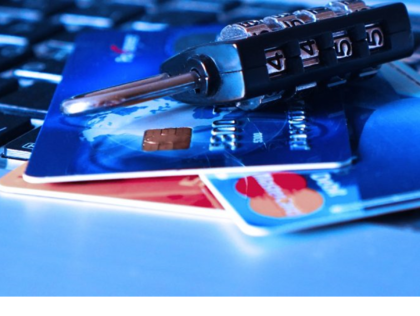In this third part of the series on Social Media security and privacy, I would like to further expose the reader to other unsuspecting pieces of information that attackers earnestly in order to advance their nefarious activities in the social cyberspace.
New Credit Card
It may sound a no-brainer, but some people become excessively happy about receiving a new credit card and end up sharing this news with a picture on their social media accounts. Doing this is just handing social media hackers exactly what they wished for. Putting your credit card info on your social media wall gives them effortless access to your financial accounts since your name and account number present on the card could without difficulty turn your life chaotic. Your new shiny plastic is a high-value aim for attackers whose plans may be to buy goods and services. Or else they may also sell your card along with others in bulk in online markets, card malls, and carding forums.
Residential Address
To stop intruders showing up at your home would be one reason not to share your residential address on social media platforms. However, social media hackers are not just looking to rob your home, in reality, they are looking out to get everything you are worthy of, nowadays. Home addresses are majorly used by financial institutions to verify your identification which can be used by muggers to create more persuasive and substantial phishing schemes that can eventually lead to identity theft, credit card fraud and other exploitation that deal a misfortune to the end user victimized.
Friends, Followers and Contacts
The first thing anyone will do after updating their personal details with any social networking application is making connections with other people. Apparently, these contacts are people you recognize and trust but you may also be connected to an online community of similar interest individuals that you have never met. The most important thing to understand here is what kind of information you are sharing with this online community. This is because, while you use social network accounts such as Facebook, Twitter, LinkedIn, etc., ample information about yourself is gathered, believing that people you know and trust will not misuse the information you post. However, hackers or Hacktivists are always in search of such information to misuse them.
Upload of Personal Data and CV
Platforms like LinkedIn where people use to hunt for jobs afford individuals the opportunity to upload personal data and information, information about their jobs (employers), technology and experience acquired. These tend to expose the individual’s identity, technology used by their employers and sometimes trade secrets to the hacker or cybercriminal to be used against the individual or their employers.
Social Plans
Sharing your social plans for everyone to take a look isn’t a good thing. For instance, it is common to see people share their flight itinerary and holiday destinations to the Aqua Safari, Royal Senchi, Holiday Abroad, etc. on social media. It is probably a bad idea. Hackers are getting cleverer and cleverer day by day. Anyone today can easily carry out a search on Twitter, Facebook etc. based on a keyword or keyword phrase, including the criminals who can do the same search for vacation posts with your intended destination and fish you out. It is good to be excited about the trips and maybe boasting about it; but if you will be doing it ensure that privacy settings on your post is set to be seen by only your trusted friends or those who matter. Although, the best time to post your holiday pics is once you are back, instead of making yourself an easy target.
Hashtags
Hashtags make it very simple for a hacker to follow a conversation on social media sites like Twitter. So, be cautious what you hashtag because social media hackers are watching every move of yours. Sharing information excessively about yourself or your whereabouts can be pretty straightforward with hashtags, especially with society now having the inclination to #hashtag their whole life. However, hashtags can be a helpful tool for hackers as they provide another way for attackers to grab information about you. Also, you must be careful about using hashtags as hackers might make a fake user profile to drive interest and followers via a post that shows popular hashtags. So, once any user follows or connects with the hacker, they are now in the trap of a suspicious URL, attachment, watering hole and many other kinds of malicious payloads. Moreover, don’t share too much and be alert of who you engage with on social media platforms.
Which Place Have You Checked In
Though it’s fun and cool, checking into your desired places on Twitter, Foursquare, or Facebook isn’t very wise. In fact, it would be smart not to check in, because social media raiders will know where you are or where you are not. This informs hackers that you will be using your credit card at various locations, making it accessible to post transactions that would otherwise be unexpected. It also leaves you more exposed to the threat for when you do online banking and are using unsecured internet connections, notifying hackers to look for this. Such information provides social media hacker information to where you will probably be again, as well.
Author : John Dadzie, Member, Institute of ICT Professionals Ghana, Network Engineer, (National Health Insurance Authority (NHIA)
For comments, contact author johnny.dadzie@live.com
Phone No: +233 244 503 883





